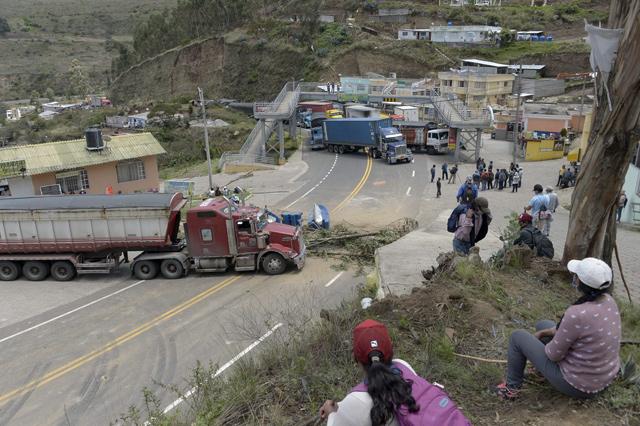Interprovincial transporters in Ecuador have announced a national strike on July 16 and 17, 2024, in protest against the elimination of gasoline subsidies and increasing insecurity on the roads. This decision comes as a major challenge for the government of Daniel Noboa, which is preparing to face its first significant strike since taking office.
The National Federation of Public Passenger Transport Cooperatives of Ecuador (Fenacotip) confirmed the strike in a press conference in Guayaquil. Abel Gómez, the head of Fenacotip, stated that the strike is driven by two main issues: the elimination of gasoline subsidies and the rampant insecurity on the country’s roads. “In honor of the lives lost, of the people who have died, whether they are users or transporters, we must turn off the engines. We cannot continue working under these conditions,” said Gómez.
Fenacotip has expressed its dissatisfaction with the government’s measures, highlighting that the compensations announced for the withdrawal of fuel subsidies primarily benefited light transport, such as taxi drivers, and did not extend to the interprovincial union. As a result, the cost of diesel, which is essential for interprovincial buses, has risen steadily, reaching $1.90 per gallon.
Security Concerns
The issue of security has been a longstanding concern for the transport sector. Since the end of 2022, under the government of Guillermo Lasso, transport unions have demanded increased protection on the roads due to a surge in robberies and homicides targeting drivers. In October 2023, the union, along with the heavy transport federation, even requested the militarization of several conflict-prone roads, such as the Quevedo ring road.
Gómez highlighted that during their participation in roundtable discussions with the government, there has been a lack of concrete solutions. “While we are at the dialogue tables, our people are being persecuted, users are assaulted, and units are intercepted,” he said. This sentiment was echoed by Miguel Bonilla, manager of Fenacotip, who pointed out the pervasive nature of crime and the absence of security and proper traffic management.
Economic Strain
The economic challenges facing the transport sector have further exacerbated the situation. The lifting of subsidies has increased the price of gasoline, with a gallon of Extra and Ecopaís gasoline now costing $2.72, following a $0.26 hike. Despite the government’s promises of compensation, the interprovincial transporters feel neglected and continue to struggle with rising operational costs.
In recent weeks, truckers have reported an uptick in robberies on roads, particularly in the Guayas region. This has led to a decline in night travel due to safety concerns. The leadership of Fenacotip has called for a thorough analysis of the road security situation by social organizations, emphasizing the need for a robust security plan and transparent use of funds generated from fuel price increases.
Call for Dialogue
Fenacotip insists that the strike is not a rejection of dialogue but a demand for tangible results. “We have not refused to engage in dialogue, but results are required,” said a transport leader. The union hopes that the national strike will compel the government to recognize the critical issues faced by transporters and take meaningful action to ensure their safety and economic stability.
The planned work stoppage aims to send a clear message to the National Government that transporters need adequate security and economic support to continue their operations. As the strike date approaches, the country awaits the government’s response to this pressing challenge.



Interesting how most of the inter provincial transporters use diesel for their engines, which is NOT affected by the reduction in subsidies……..yet they want to go on strike. Hmmmm?
What a pile of crap! The cost of diesel is below $1.80 a gallon and was never part of the subsidy cut! Any excuse for a strike……..